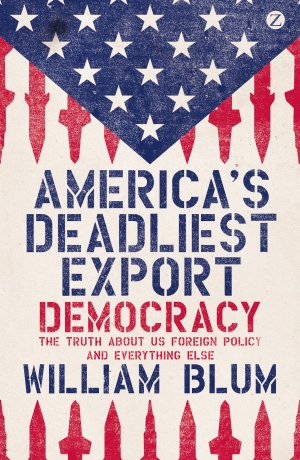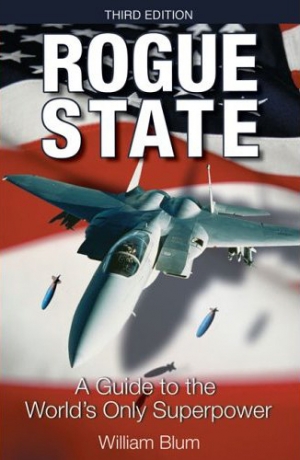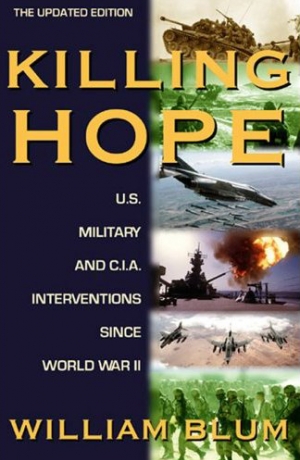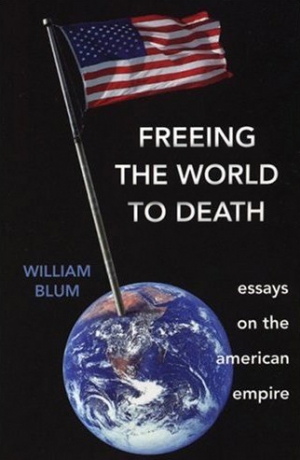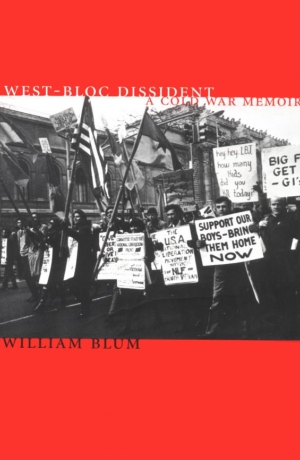Book review: The Best Democracy Money Can Buy by Greg Palast
By William Blum
The Best Democracy Money Can Buy
by Greg Palast
Pluto Press
It’s enough to make one cynical. American elections are manipulated, British parliamentarians are bribed, scientific research is financed by companies who are interested parties, energy crises are rigged, and a score of other varieties of modern-day sleaze.
What’s that? You say you’re already cynical? Well, unless you’re so cynical that you won’t even utter a word in the hope of changing anything, Greg Palast’s new book can be a handy tool.
The Best Democracy Money Can Buy is composed of dozens of essays – many of which are actually summaries of Palast’s investigative journalism escapades – on the myriad ways those of power and wealth have stolen and/or perverted cherished ideas and institutions of the United States and the United Kingdom.
Palast, an American who writes for The Guardian and The Observer of London, has the uncanny knack of turning up at the wrong place at the right time. His showcase essay has to do with the 2000 US presidential election in Florida, and how Governor Jeb Bush and his team shamelessly contrived the removal of thousands of voters’ names from the election rolls; voters who were in large measure black (read Democratic voters). The result was nothing less than the placing in the White House of Jeb’s brother George. This is by now a well-known story, thanks to Palast, who adds a lot of details to it in the book. What I found most disturbing, albeit not terribly surprising, is that when he approached mainstream media in the US to give the story the play it deserved, their reaction was to call Jeb Bush’s office for confirmation. Jeb Bush’s office denied it. And that was good enough for the mainstream media. It’s not easy for loyal, unquestioning Americans to embrace the idea of the US as a banana republic.
The IMF and the rest of the international financial mafia are a favorite target in the book. Palast details the onerous conditions imposed upon poor countries by the IMF. Some of the details he says derive directly from confidential IMF documents that came into his hands. I, and I’m sure many other readers, would love to see the exact wording used by IMF, to see how they rationalize their oppressive policies, and what kind of euphemisms they resort to, or if they push their policies unabashedly. Unfortunately, Palast only paraphrases the details, doesn’t quote them, and doesn’t show any examples of the secret pages in the book. Inexplicably, the one page he shows in this section, from the World Bank, is only the cover page of a report. Documentation is not Palast’s strong point; there are scarcely any notes.
Of significance is the essay on “The Economic Miracle of Chile”, the oft-repeated claim by conservatives of the supposed marvelous benefits of the Pinochet regime’s laissez-faire, supply-side economic policies. Palast describes it as a case of “deregulation gone berserk”, which eventually drove the country into bankruptcy and depression and needed “a large dose of socialism” to rescue it.
Palast is generally adept at making economic and other issues readable because of his breezy, personalized, iconoclastic style, although there are occasions when more unadorned language, a slower pace, and a “books for dummies” approach would have served the reader better. That’s part of the problem with the essay on the California “energy crisis” of the late 1990s and 2000. I’ve read several accounts of that event with not one coming even close to making it understandable. Palast is an improvement over the others, but his account still left me with more questions than answers. In fairness to him, his essay was not designed to be a primer per se on the California energy crisis, but rather a discussion of the dangers of electricity deregulation, but it refers so much to the events in California that a fuller deconstruction of those events would seem to be in order.
Overall, the multitude of subjects and issues covered and the frequent flights from one to the next can be a bit jarring and disorienting. There is often a want of the continuity that a good book needs. But Palast’s humour sometimes makes up for a shortcoming or two. An example:
“The Kyoto Protocol aimed to slash emissions of ‘greenhouse gases’ which would otherwise fry the planet, melt the polar caps and put Blackpool and Los Angeles under several feet of water. (It will also have negative effects.)”
Palast, it should be noted, is a native of Los Angeles.
